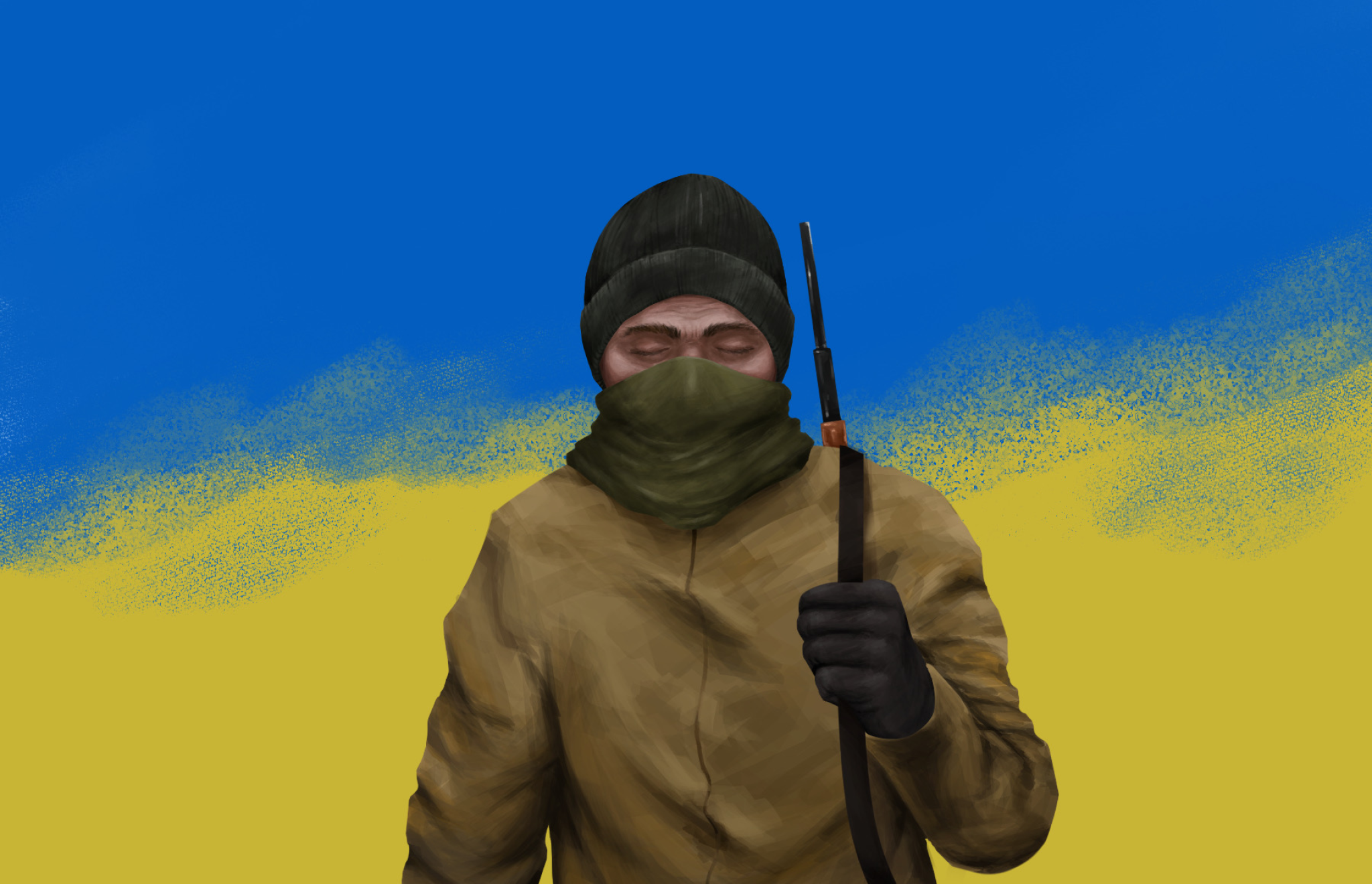Berkeley International High School (BIHS) senior Beckett Ellis-Chatman grew up hearing his grandparents speak Russian and Ukrainian. His family hired a Russian tutor to teach him the language at a young age. As years passed, while his practice in Russian dwindled, his familial identity remained strong.
On February 24, Russian forces entered Ukraine, an occasion marking a culmination of years of tension between the two countries.
Ellis-Chatman had been reading on the region’s political situation since last year, when he began to further explore his Ukrainian heritage through social media and sports.
“I sympathize a lot with the people in Ukraine [and] heavily identify with their struggle … fighting for their identity because I share that identity with them,” Ellis-Chatman said. “And [Vladimir] Putin wants to erase that.”
Now a definitive war, Russia’s invasion of Ukraine has included sending Russian soldiers into Ukrainian battlefields. Berkeley High School (BHS) BIHS sophomore Filipp Khabur said many of these troops are civilians, serving for the first time due to a law that says Russian men between the ages of 18 and 27 years old must serve two years in the military.
Khabur was born in Russia, in a part-Ukrainian household. Today, he is on a visa to attend school in the United States while his brother lives with their grandmother in Russia.
When his visa expires, Khabur will return to Russia to live with them.
“I [have] always [known] that when I come back to Russia, I might have to serve my obligatory military service,” Khabur said. “It was a running joke in our family. … It was always like, ‘Oh, it’s gonna be military training and living like a dog for a year’ but it was never like, fighting a war.”
Due to his age, Khabur said his brother might get drafted to serve in the Russian military.
In their classes, some teachers are considering how to address the event with students. Academic Choice (AC) teachers met to discuss strategies to best support their students.
“I think the main thrust of what the staff says is [that] it’s okay to be authentic with kids and say, ‘I’m concerned too, I’m worried too, and I don’t have the answers, and that’s okay,’” said AC teacher Jordan Winer.
AC teacher Angela Coppola said she had been closely following Russian activity since 2016, when Russian influence was high during the United States presidential election. In her class, Coppola posted resources for her students on Google Classroom and connected the event to the Cold War.
Coppola referred to the past two years, saying, “Students are getting bombarded with really distressing information all the time.” She added that while it is important to focus on the news, the greater concern is being able to establish healthy boundaries when consuming information.
When Russia began to threaten Ukraine, Ellis-Chatman noticed a flood of controversial opinions posted on Instagram and TikTok.
Ellis-Chatman said he felt “frustration on how people were reacting in the media, sort of downplaying the threat.” Ellis-Chatman said that once Russia invaded Ukraine, people blamed the United States for escalating the event, when they should have focused their accusations toward Russia.
AC junior Ivan Cuatlatl saw rumors of invasion before Russia entered Ukraine, as well as information on social media after the invasion.
Jokes about being drafted arose in Cuatlatl’s classes.
None of Cuatlatl’s teachers talked about the war and conversations with his friends didn’t venture past the event’s physical parameters.
“I thought that people were going to talk about it more,” Cuatlatl said. “It’s a situation that needs to be talked about. … No one really wants to talk about it seriously and really [understand] the consequences of what this invasion could lead to.”
Khabur saw “unhinged” posts by people on Twitter, one of a “guy [proposing] to kick Russian students out of US universities as a sanction.” He heard BHS students making other generalizations about Russians.
While on a field trip, Khabur’s class encountered a volunteer who “cracked a Russian joke every ten minutes.”
“That was the most uncomfortable experience in my life,” Khabur said. “Most of my teachers just don’t care.”
Khabur said students should be sensitive about others’ experiences and educate themselves by interacting with Ukrainian and Russian news.
“[I] hope that students are able to distinguish between Putin and the Russian people,” Coppola said. “That he is a dictator with absolute control in that country … and people who are living in that country should be empathized with and not be demonized,” said Coppola.
Winer encouraged his students to consult primary sources, such as independent journalists living near the war, to educate themselves on the situation.
The conflict evoked Winer’s memories of his adolescence around the end of the Cold War, reminding him of the threat Russia posed to the West.
Winer related his childhood perspective to his students’ reactions to the Russia and Ukraine conflict, and decided to talk with them in efforts to help provide context for the war.
“I hope to see more student activism in solidarity with Ukraine,” Winer said. “The Russians are out there, protesting, and that’s a big risk … We’re not risking as much,” said Winer.





